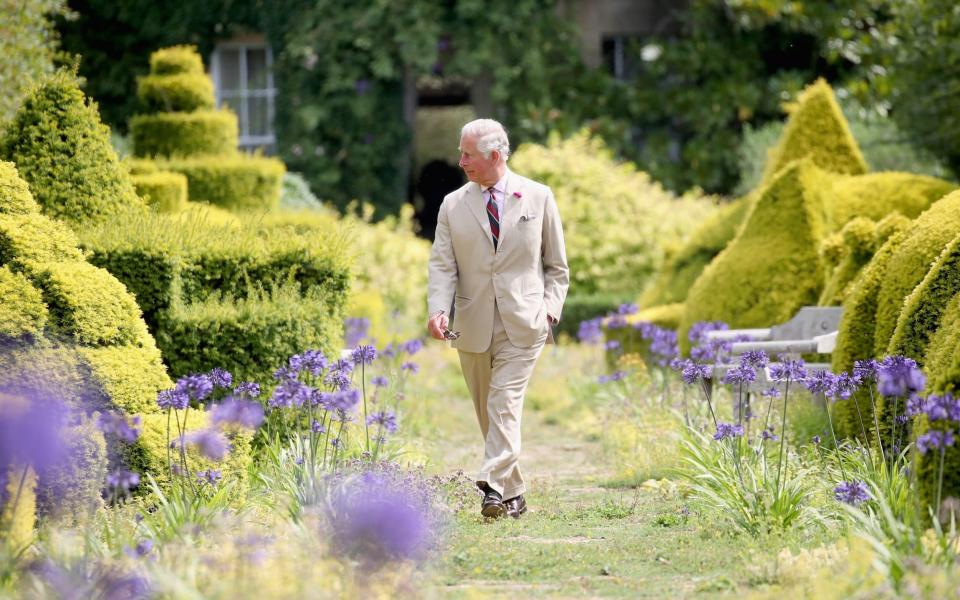King Charles shares his Highgrove gardening tips in TV programme

Since the death of Queen Elizabeth, her son and heir has been the face of national bereavement and solemn duty.
We are shortly, however, to see the King back in a refreshingly different but no less familiar role: as unofficial conservation guru to the nation.
Filmed before the events of last month, a new programme follows His Majesty around the gardens of his beloved Highgrove House in Gloucestershire.
Accompanied by the poet Pam Ayres, he speaks of his years of steady work to realise his highly personal ecological vision in the grounds of the private residence.
And, as a famously practical man, he is, as ever, not short of advice.

Do you want to help revive the population of aerial feeding birds where you live?
Then build a swift box, he says - preferably under an overhanging roof.
“You can, as I have discovered, attract Swifts if they have gone by putting in a swift box,” King Charles tells the poet in a new episode of The Cotswolds and Beyond with Pam Ayres.
“They start prospecting, and then you have to wait another year or two before they actually start occupying.”
“We’ve gone on and on about the things we’ve been doing in the Duchy of Cornwall - to have swift boxes and little holes for swallows and house martins,” he continues. “It’s happening a bit more.”

The pair spoke of reviving bird numbers in, arguably, the jewel in the crown of the Highgrove gardens: the wildflower meadow, established in 1982.
He has been an outspoken critic of the decline of natural meadows in the UK, which are vitally important for insects and therefore bird stability.
The King spoke of how he used to painstakingly count the number of orchids in the meadow each year, noting down his findings, until he gave up because “there are masses of them now”.
A hands-on gardener, he told Ms Ayres how he still scatters new seeds by hand in autumn and winter.
“Then you have to wait seven or eight years before anything happens. By that time I’m dead probably,” he jokes.
Praised for the originality of the Thyme Walk, he reveals: “There’s not much thyme left because the rabbits dug up everything all the time. So I put in other things, like marjoram.”
“It’s quite intriguing what pops up. It’s a combination of order and chaos.”

Upon the death of his mother, King Charles becomes the master of Buckingham Palace and Windsor Castle, as well as inheriting other properties, and it remains unclear how much time he will be able to devote to Highgrove.
He spoke to Ms Ayres of how he never set out to transform the grounds with a single plan, but rather tackled “one bit at a time”.
He was praised by the poet for a hedgehog ramp in one of the ornamental fountains, which gives small creatures a means of escape if they fall in.
The programme airs on Channel 5 at 8pm on Friday.

